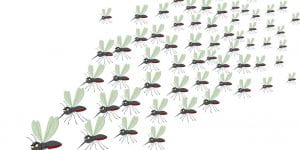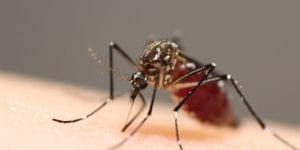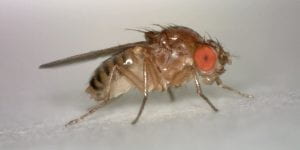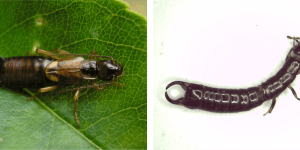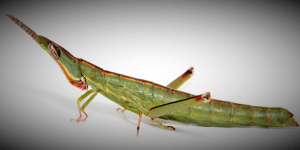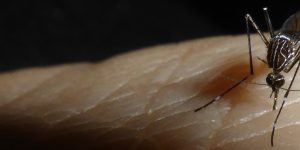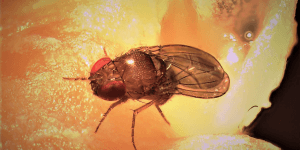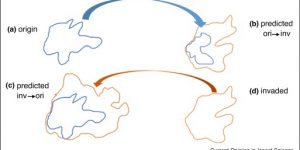Tag: evolution
-
Looking for a funded PhD or MPhil scholarship?
The Australian Grains Pest Innovation Program (AGPIP) is offering 4 fully funded scholarships at the University of Melbourne for potential PhD or MPhil students interested in cutting-edge science, environmental sustainability and agricultural innovation. AGPIP is a collaboration between the PEARG and cesar. The program is aimed at improving the sustainability of invertebrate pest management practices […]blogs.unimelb.edu.au/pearg/2020/04/06/looking-for-a-phd-or-mphil-scholarship
-
How do we protect our unique biodiversity from megafires?
This article was first published on Pursuit. Read the original article. Authors: Dr James Camac, Nicholas Bell and Professor Ary Hoffmann This summer’s devastating Australian fires and their continuing impact on biodiversity serve as a stark reminder of the challenges in nature conservation as we head into an increasingly volatile future driven by climate change. […]blogs.unimelb.edu.au/pearg/2020/02/21/how-do-we-protect-our-unique-biodiversity-from-megafires
-
Variability in mosquito host-seeking ability
Words and images: Meng-Jia Lau Behaviour is one of the most complex study areas in biology because it involves a combination of many factors that are often quite variable. In mosquitoes, host-seeking is the behaviour of females seeking a blood meal which provides the extra protein they need in order to lay eggs. The biting […]blogs.unimelb.edu.au/pearg/2019/11/28/variability-in-mosquito-host-seeking-ability
-
Releases of Wolbachia-infected mosquitoes for disease control
Words and images: Perran Ross When animals raised in captivity are released back into the wild, you might picture cute and furry mammals from an endangered species. But in many countries around the world, people are releasing mosquitoes raised in laboratories into the environment. These mosquitoes feed on human blood and are vectors of dengue, […]blogs.unimelb.edu.au/pearg/2019/09/18/releases-of-wolbachia-infected-mosquitoes-for-disease-control
-
Using genomics to determine the adaptive potential of populations
Words: Ary Hoffmann One of the central tenets of conservation biology is that high levels of genetic variation in natural populations is important for their long-term survival. High levels of variation allow populations to adapt to changing environments through evolution. This process is now recognised as being extremely fast when selection pressures are high. In […] -
New open access paper: Morphological and molecular analysis of Australian earwigs (Dermaptera) points to unique species and regional endemism in the Anisolabididae family
Words and images: Oliver Stuart Link to open access paper Earwigs (Dermaptera) are a challenging group of insects to study. In Australia, earwigs are variously known as pests, predators of pests (so, beneficial insects), or both at once depending on the crop type and other particulars. The invasive Forficula auricularia (the European earwig) is the […] -
The diversity of Aussie grasshoppers | Part one
Words: Vanessa White Images: Mike Kearney and Vanessa White Why Australian grasshoppers are fantastic research subjects: The Morabine grasshoppers (subfamily Morabinae) commonly known as “matchstick grasshoppers” are endemic to Australia and comprise 40 genera and around 250 species (Rentz 1996). Both sexes are wingless with a characteristic matchstick-like appearance. Some Morabine species have been studied […]blogs.unimelb.edu.au/pearg/2018/10/08/the-diversity-of-aussie-grasshoppers-part-one
-
SEEKING MSc STUDENT | Buruli Ulcer’s Most Wanted – Understanding the mosquito associated with the flesh-eating bacteria, Mycobacterium ulcerans
Aedes notoscriptus has been identified in association with the emerging bacterial pathogen Mycobacterium ulcerans, which causes Buruli ulcer, as well as being a vector of Ross River virus. Key ecological features such as bloodmeal feeding patterns and movement dynamics of individuals are however not clearly defined. This project will involve both laboratory and field-based components. Field […] -
A new and unusual Wolbachia bacteria from Drosophila flies limited to the female sex
Words: Ary Hoffmann Cover image: Perran Ross As Wolbachia bacteria that live inside insect cells continue to be discovered and studied in detail, our appreciation of the diverse ways in which these bacteria interact with their hosts continues to expand. In past work we have found Wolbachia that cause embryo death when infected males mate […] -
Rapid evolution in insect pest species
Off the back of a review Ary wrote last year in Current Opinion in Insect Science, a less technical and more digestible summary is now available (sans pay-wall) at Science Trends. A Quote from the Science Trends article to grab your interest: Evolutionary changes often occur when pest species invade new areas where they have […]blogs.unimelb.edu.au/pearg/2018/04/30/rapid-evolution-in-insect-pest-species
Number of posts found: 23


